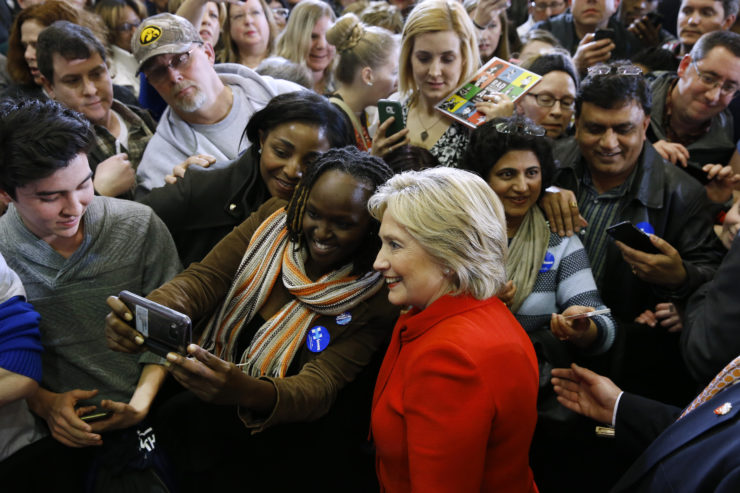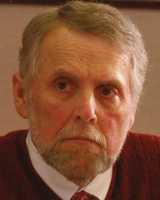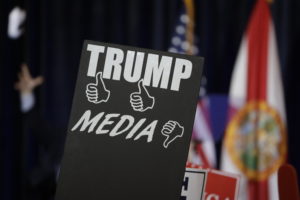
Democratic presidential candidate Hillary Clinton poses for a photo with an attendee after speaking at a town hall at Valley Southwoods Freshman High School in West Des Moines, Iowa in January
From 1980 through 2008, when I was editor of the Concord (N.H.) Monitor, most presidential candidacies began long before the campaign went national. From fringe to favorite, candidates came to New Hampshire and visited Rotary Clubs, town halls, and living rooms to hear what was on people’s minds. What they heard helped shape their messages.
John McCain is the best example. He did 114 town meetings in New Hampshire in 2000. He was moderate and humane on immigration then and listened on the environment. He always gave time to questioners who challenged his views.
In 2008, as the favorite, he went right to a national campaign and squandered a pile of cash. I was at a civic club lunch where he spoke in the summer of 2007. The media had flocked to Concord to write his political obituary. His New Hampshire pals were there, too, trying to tell reporters that McCain had no choice but to get back on the bus. And he did. It saved his campaign, and he won the nomination.
Fast forward to 2012 when Rick Perry decided to run for president. This was long before the New Hampshire primary, but the networks by now had taken over the process. During one of a series of televised debates a year before the election, he was asked to name three federal departments he would eliminate. He got stuck on two. Had the old retailing model been in place—had Perry spent time listening to voters in small settings—when the first debate rolled around, the three departments he most longed to rub out would have been on the tip of his tongue.
Meaningful encounters with real citizens used to be required in presidential campaigns. This began to change in 2000. That year, the George W. Bush campaign held many events either in corporate offices or venues where only his supporters were invited. “Businesses are the new town halls,” a campaign adviser said. Voters noticed: McCain’s Straight Talk Express rolled over Bush in New Hampshire. By the summer of 2007, Barack Obama and Hillary Clinton were such rock stars that their events routinely attracted thousands of people. A few small come-one, come-all town meetings would have made Obama a more effective president from the start of his administration.
The medium is the message. Our presidential campaign is a TV show now, an entertainment. In debate after debate, candidates shape their messages by bold and cutting assertion, not through a conversation with the American public. The media-political-big money axis has created a process where moving apart plays better than coming together, and performance triumphs over substance.


